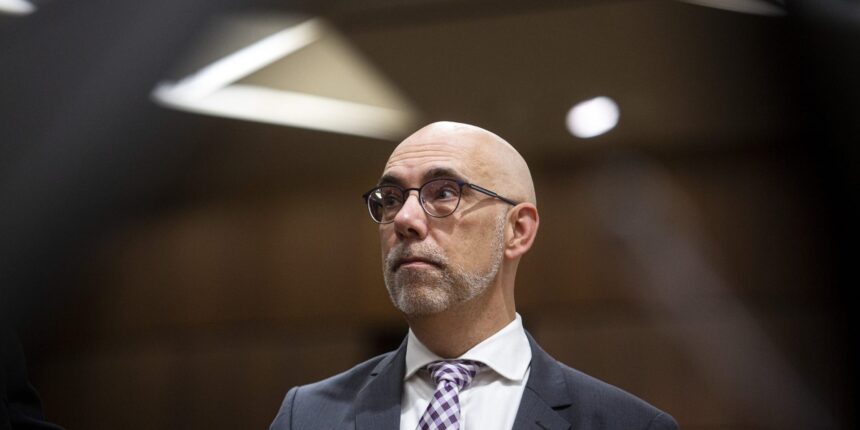The silence is deafening for Canada’s budget watchdog as his mandate approaches its end. Parliamentary Budget Officer Yves Giroux, whose office provides independent financial analysis to lawmakers, says he’s received no indication whether he’ll be reappointed when his term expires next September.
“Nobody has talked to me about what comes after,” Giroux told me during a recent interview at his Ottawa office. “I don’t know if they want me to continue or if they’re looking for someone else.”
Giroux, who has served in the role since 2018, has earned respect across party lines for his straightforward assessments of government finances. His office’s reports often challenge government narratives, providing parliamentarians with crucial independent analysis of everything from budget projections to the cost of major policies.
The Parliamentary Budget Office was created in 2008 as part of the Federal Accountability Act under former Prime Minister Stephen Harper. It has since become an essential check on government financial claims, regardless of which party holds power.
“The role requires someone who can speak truth to power,” explains Sahir Khan, executive vice president of the Institute of Fiscal Studies and Democracy at the University of Ottawa. “Giroux has managed to maintain credibility with all parties while delivering sometimes uncomfortable financial realities.”
The PBO appointment process requires consultation with opposition parties, making it one of the few senior positions demanding cross-partisan support. This provision helps ensure the office maintains independence from the government of the day.
“What makes the PBO effective is that financial analysis comes without partisan fingerprints,” notes former parliamentary budget officer Kevin Page. “Canadians deserve to know the real costs of government decisions, not just the talking points.”
Giroux’s tenure has covered turbulent financial times, including the massive pandemic spending period and subsequent inflation challenges. His office’s analysis of the federal deficit and debt trajectory has frequently made headlines, sometimes contradicting more optimistic government projections.
Finance Minister Chrystia Freeland’s office declined to comment on Giroux’s potential reappointment, saying only that “the government values the work of independent officers of Parliament” when contacted for this story.
Conservative finance critic Jasraj Singh Hallan said his party believes the PBO role “must remain fiercely independent” and that any succession process should be transparent. “Canadians deserve financial accountability regardless of who holds power,” Hallan stated.
The uncertainty comes as Canada faces significant fiscal challenges. The federal debt has surpassed $1.2 trillion, and interest payments alone now exceed $40 billion annually. Whoever serves as PBO will need to provide clear analysis of these fiscal realities.
Carleton University political science professor Jonathan Malloy suggests the delay might simply reflect the government’s priorities. “These appointments sometimes get pushed to the backburner until deadlines approach,” Malloy explained. “It doesn’t necessarily signal anything about Giroux’s performance.”
For his part, Giroux says he’s focused on the work at hand rather than his future. His office recently released reports on carbon pricing impacts and healthcare transfer sustainability that generated significant debate in Parliament.
“My job isn’t to make friends in government,” Giroux said. “It’s to give parliamentarians accurate financial information so they can make informed decisions on behalf of Canadians.”
The PBO’s independence has occasionally been tested. In 2021, the office faced criticism when seeking data about pandemic benefit payments, with some departments initially resisting information requests. After public pressure, most of the information was eventually provided.
As Ottawa gears up for another budget season this spring, the question of who will lead this crucial oversight office beyond 2025 remains unanswered. Whatever the government decides, financial transparency advocates emphasize that maintaining the office’s independence should be paramount.
“The PBO serves the public by cutting through financial spin,” said Toby Sanger, executive director of Canadians for Tax Fairness. “That function is too important to play politics with.”
Walking through Parliament Hill on a crisp winter morning, I couldn’t help but reflect on how the PBO’s reports have become essential reading for anyone covering federal politics. Whether the government likes their conclusions or not, these analyses form the backbone of informed debate about Canada’s financial future.
For now, Giroux continues his work, letting the numbers tell their story while his own professional future remains a question mark on Ottawa’s political horizon.







